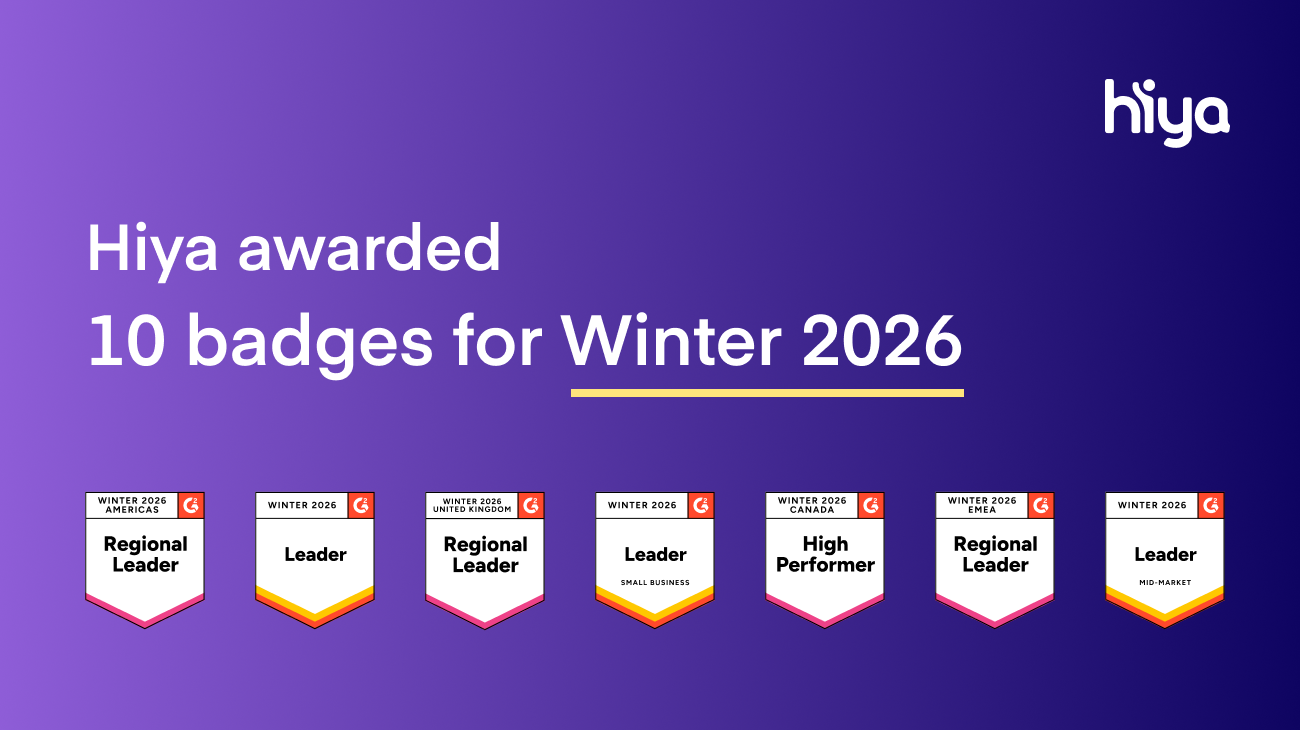
What happens when scammers hit a roadblock with their fraudulent calls? Do they lay down their headsets and go home? Not likely. It’s more likely they simply move on to a different market.
That seems to be the case with Amazon scams. Hiya’s data show that over the past year, Amazon phone scams have declined in the US, while at the same time have risen in Canada and the UK.
The volume of these calls is also higher in Canada and the UK. Even though there are significantly more Hiya users in the United States, residents of Canada and the UK receive more Amazon scam calls. In April 2024, Hiya users in Canada reported more than five times as many Amazon scam calls compared to users in the US. In the UK, users reported twice as many as in the US.
Hiya user reports come from individuals using Hiya Protect via their carrier, device manufacturer or the Hiya mobile app. When an unwanted call comes in, Hiya users can tap a prompt on their phone to report the call as spam (fraud or nuisance). Users can also leave a comment about the call they just experienced, such as, “Amazon scam call” or “They claimed to be the Amazon security department.” That allows Hiya to track Amazon scams over time and in different countries.

Last month, Canadians received five times as many Amazon scam calls as did US residents, while citizens of the UK received twice as many.
Why are Amazon scams more prevalent in Canada and the UK?
We don’t know the exact reason why there are more Amazon scam calls in Canada and the UK than the US, but it could be a number of factors.
Enforcement efforts by US agencies could be more robust than other countries, so scammers may turn their efforts to countries where they’re less likely to get caught and prosecuted. We recently wrote about senior scams in Canada, some of which originate from call centers in Eastern Europe that specifically target Canadians. A news report from CBC/Radio-Canada quoted an investigator who said scammers love Canadians because they’re friendly, they’re relatively wealthy, and government bureaucracy and too little intelligence-sharing by law enforcement has led to very few investigations.
Another reason could be that analytics services (such as Hiya) that provide spam protection for the major phone carriers in the US to identify and filter out scam calls before they reach potential victims, aren’t as widely adopted yet. Hiya’s latest Global Call Threat Report shows that the fraud rate in the US (percentage of unwanted calls considered fraud) was a mere 1%, while the fraud rate was 7% in Canada and 3% in the UK.
Amazon cracking down on imposters
In an article published recently on Amazon’s website, Amazon charts a course for protecting consumers from scams, the company says it takes scams seriously and has been taking steps to ensure that scammers are not using its brand to take advantage of people:
“Our investigation teams are actively engaged in several cross-industry groups collaborating on joint enforcement actions. And we have some early successes, including our 2023 partnership with Microsoft and the Central Bureau of Investigation (India) that resulted in dismantling over 70 fraudulent call centers in India. These examples underscore what might be achieved to stop these bad actors through the power of collaboration.”
The article notes that in 2023, Amazon initiated takedowns of more than 40,000 phishing websites and 10,000 phone numbers impersonating Amazon. Still, the company admits, there is more that can be done:
“We can take down reported scam phone numbers the same day and phishing websites in just a couple of hours. Shutting these down is important, but does not prevent more from being created. Governments and private sector organizations around the world should work together to stop scams at the source through solutions, like disabling scammers’ ability to create fraudulent phone numbers and websites.”
How to fight back against Amazon phone scams
While Amazon scams are common worldwide, Hiya offers a variety of solutions to fight back.
Carriers can add Hiya Protect, a complete call protection solution that enables mobile network carriers to protect their subscribers by blocking fraud calls and labeling spam calls, and helping them discern wanted calls from unwanted calls. Using Adaptive AI technology, Hiya Protect analyzes past and present call patterns and responds to new threats as they emerge.
Enterprises can help their customers feel safe answering the phone by adding Hiya Connect, which enables businesses to display their company name, logo and reason for the call on the recipient’s mobile phone.
Individuals should contact their phone carrier to see if it offers call protection at the network level. If not, individuals can download the Hiya mobile app.

.jpg)

